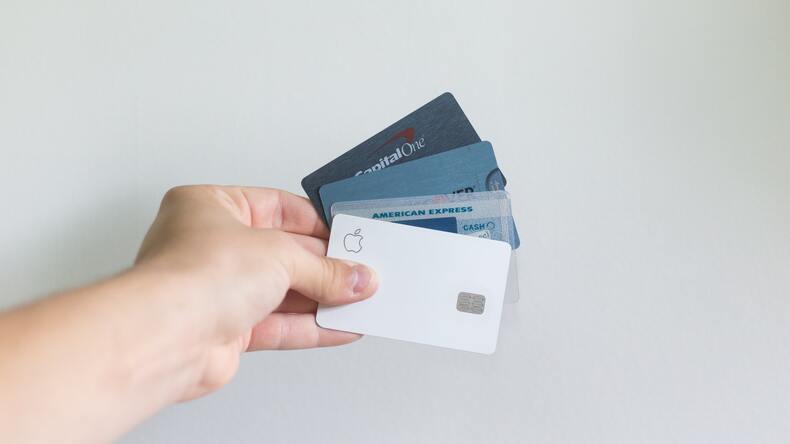3 Secrets to Building Better Credit
It’s nearly impossible to exist in the world today without a healthy credit score. Car loans, mortgages, and personal loans all require a high credit score to receive the best interest rates. Even utility companies, rental property managers, and car insurance companies consider your credit score.
So, where do you start when building credit? Or how does one recover from less than stellar credit? Unfortunately, there are no quick and easy fixes. There are, however, several things people with good credit know to do consistently to keep their scores trending upward. Apply these three secrets to building the credit you need to achieve your financial goals.
1. Start Secured
One of the easiest and safest ways to start building or repairing your credit is with a secured credit card. This is an especially good option for those with little to no credit history. Unlike an unsecured credit card, a secured credit card is backed by a cash deposit. The issuer of your card will hold on to that deposit as collateral until you close your account. If you fail to make payments, that deposit can be used to cover your debt.
A credit builder card works similarly. Instead of paying a deposit, money can be transferred to a secured credit-builder account attached to your card. The activity from this account is reported to the credit bureaus and used to better your credit score.
Credit builder loans are another option for building credit with less risk. These loans are specifically for building credit. You won’t actually see the money you have borrowed. Instead, the lender will hold the loaned money in a bank account, and all payments are used for credit reporting.
Two additional options for establishing or altering your credit require support from other people. It is possible to have someone with better credit cosign with you on some credit cards. It is important to note that your cosigner is then also responsible for your credit choices. Another option is to become an authorized user on someone else’s credit card. This is helpful because the other person’s good credit management can improve your credit health.
2. Monitor Your Credit
If you are serious about working on your credit, it’s important to begin to monitor your credit immediately. You can do this sufficiently at low or no cost through companies like LifeLock, CreditKarma, or the three credit bureaus. You can request a free credit report every year.
Keeping close tabs on your credit is important for three main reasons. The first is that it’s a strong line of defense against identity theft. Between data breaches and smarter criminals, no one is truly safe from the threat of identity theft. Having the ability to keep watch for the fraudulent activity will save you time, money, and grief. Watch for lines of credit that you did not open.
The second reason is that your credit report could contain inaccuracies or errors. While there are plenty of legal protections in place for consumers, mistakes still happen. By monitoring your credit regularly, you can catch, dispute, and correct errors if they occur.
The final reason to monitor your credit is to better understand your credit usage, which affects your overall credit health. This is beneficial when deciding when or if the time is right for life’s larger transactions. The more proficient you are at managing your finances, the better the chances are of reaching your financial goals.
3. Be Responsible
It may go without saying, but being financially responsible goes a long way in building and maintaining good credit. It’s easy to make a habit of using credit cards for everyday purchases because of their convenience or reward benefits. However, it is even more important to integrate some of these additional good credit card behaviors.
Pay on Time
Payment history is a huge factor in determining your credit score. Late payments will lower your score, generate costly fees, and lead to interest rate increases. Make it a priority to always stay on top of your monthly payments.
Pay Balances in Full
It is tempting to only pay the minimum payment due on your credit card statement. However, unless it’s an emergency, there is no benefit to carrying a balance on your cards. It is perfectly acceptable and possible to build credit without ever paying a penny of interest!
Keep Utilization Low
Credit utilization is the ratio of your total available credit to the amount you choose to spend. This is also another key piece of what makes up your credit score. Keeping your credit utilization below 30% is recommended and staying under 10% is ideal. This means if your credit limit is $2,500, you would want to keep your usage under $750.
Request Higher Limits
Once you find yourself successfully using and managing your credit cards, it may be time to level up. Increasing your limit allows you to increase the amount you can spend while keeping your utilization low. If you’d like to be able to carry more than that $750 on your credit card, try requesting higher credit limits.
Mix It Up
Having a good credit mix can also boost your credit score. Installment credit and revolving credit are the two main types of credit. Credit cards fall into the revolving credit category because the balance is always in flux. Things like car payments and student loans, for which you pay a fixed payment every month, are installment credit. Holding a mix of both types of credit shows that you can manage different types of debt successfully.
While building better credit is not instantaneous, it’s attainable with diligence. Start small with secured cards and over time, expand into additional lines of credit and increased limits. Give yourself time to learn what works for you. Even if you hit a snag with a late payment, keep striving for credit management excellence. The credit score-building process is a marathon and not a sprint!







